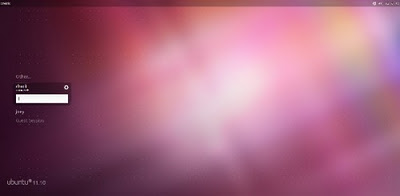Some of the applications which we install from third party sources are not indexed in the Applications tab in the GNOME shell.
The problem in such a case is the high chances of forgetting what the application name is! And this happens so often with me, that I am forced to create these entries in the Applications menu.
Here's a simple procedure to do this. Although there's System->Preferences->Main Menu to do this, this one is better for some obvious reasons (you can give your custom icons)
In the Icon field of the .desktop file, provide the file name if the icon resides in the aforementioned default directory, or give the full path of the icon
And there you go, your own custom application entry with a custom icon!
The problem in such a case is the high chances of forgetting what the application name is! And this happens so often with me, that I am forced to create these entries in the Applications menu.
Here's a simple procedure to do this. Although there's System->Preferences->Main Menu to do this, this one is better for some obvious reasons (you can give your custom icons)
- The Applications Menu entries reside in the directory /usr/share/applications , and to create a new entry create a .desktop file in this directory
cd /usr/share/applications
sudo nano myapp.desktop
- The .desktop files have just the information needed to put up an entry in the Applications tab, and to run your app; Here is the sample content of the Qtoctave entry from the file qtoctave.desktop
[Desktop Entry]
Version=1.0
Name=QtOctave
Comment=Graphical Qt frontend for GNU Octave
TryExec=qtoctave
Exec=qtoctave
Icon=qtoctave
Type=Application
Categories=Development;Math;Science;Education;Electronics
- Make these entries into the myapp.desktop file with relevant modifications like your executable file name in the exec field.
- After modification of the .desktop file, save and close it. Now, the entry should appear in the categories which you mention.
- To add your application an icon, crop a 32x32 png image and add it into the default icons directory /usr/share/app-install/icons/,
sudo cp myicon.png /usr/share/app-install/icons/
In the Icon field of the .desktop file, provide the file name if the icon resides in the aforementioned default directory, or give the full path of the icon
And there you go, your own custom application entry with a custom icon!









